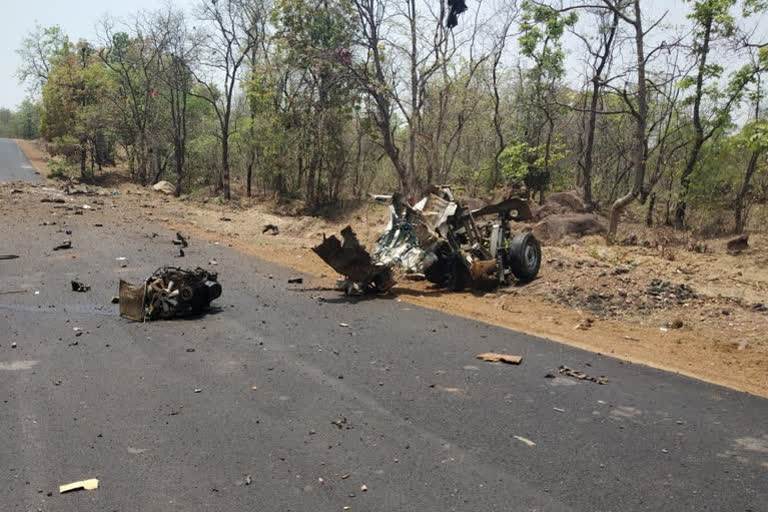Mumbai: Saying the fundamental right to protection of life and liberty guaranteed by Article 21 of the constitution applied to everyone, including prisoners, the Bombay High Court on Tuesday said it will consider alleged Maoist leader Nirmala Uppuganti's plea seeking transfer from prison to a hospice "from all angles" permissible under the law.
A bench of Justices SS Shinde and NJ Jamadar reserved its order on Uppuganti's plea seeking such transfer.
An accused in the 2019 Gadchiroli IED blast case, Uppuganti had filed a plea in the HC earlier this month seeking that she be shifted from the Byculla women's prison to a hospice as she is terminally ill with cancer.
At least 15 security personnel of the Gadchiroli Quick Response Team and one civilian were killed in an IED explosion triggered by Naxals in Maharashtra's Gadchiroli district on May 1, 2019.
In her plea filed through senior counsel Yug Chaudhry and advocate Payoshi Roy, Uppuganti asked to be shifted to a hospice for palliative care so that she will be "properly taken care of during her final days".
On Tuesday, Roy told the bench that Uppuganti's had metastatic cancer that had spread to her lungs and other organs. She said that Uppuganti, an undertrial, had reached stage four of cancer and deserved adequate medical care in her last days of life.
The state's counsel Sangeeta Shinde, however, opposed Uppuganti's plea.
Read: 15 commandos, driver killed as Naxals trigger IED blast in Maha
Shinde told the HC that Uppuganti was accused of a serious offence. She said Uppuganti was able to move on her own and had been provided with the help of two other inmates to take care of her in the prison.
The government counsel further said that as per the advice of doctors, the state prison authorities were taking Uppuganti to the Tata Memorial Cancer Care Hospital in Mumbai three times a week for treatment.
Roy, however, told the HC that Uppuganti was undergoing radiation and chemotherapy merely to alleviate her suffering and there was no cure for her advanced stage of cancer.
Roy reiterated that Uppuganti should be allowed to be shifted to a hospice to spend the last few days of her life and that she be permitted to meet her husband, who is also her co-accused in the case and currently in judicial custody.
At this, the bench said that judges are also humans and they would consider what was permissible within the law in the case of the petitioner.
"You should be optimistic. Why are you restricting her life to last few days? She may live longer. First, we are humans, then we are judges," the HC said.
"At the cost of repetition, Article 21 applies to everyone, prisoners also. There is 'n' number of judgements. Certainly, discretion has to be used and we cannot go beyond the law, but we will consider all angles," the bench said while closing all arguments and reserving its order.
Read: Gadchiroli blast: Police find note thanking informer
PTI



